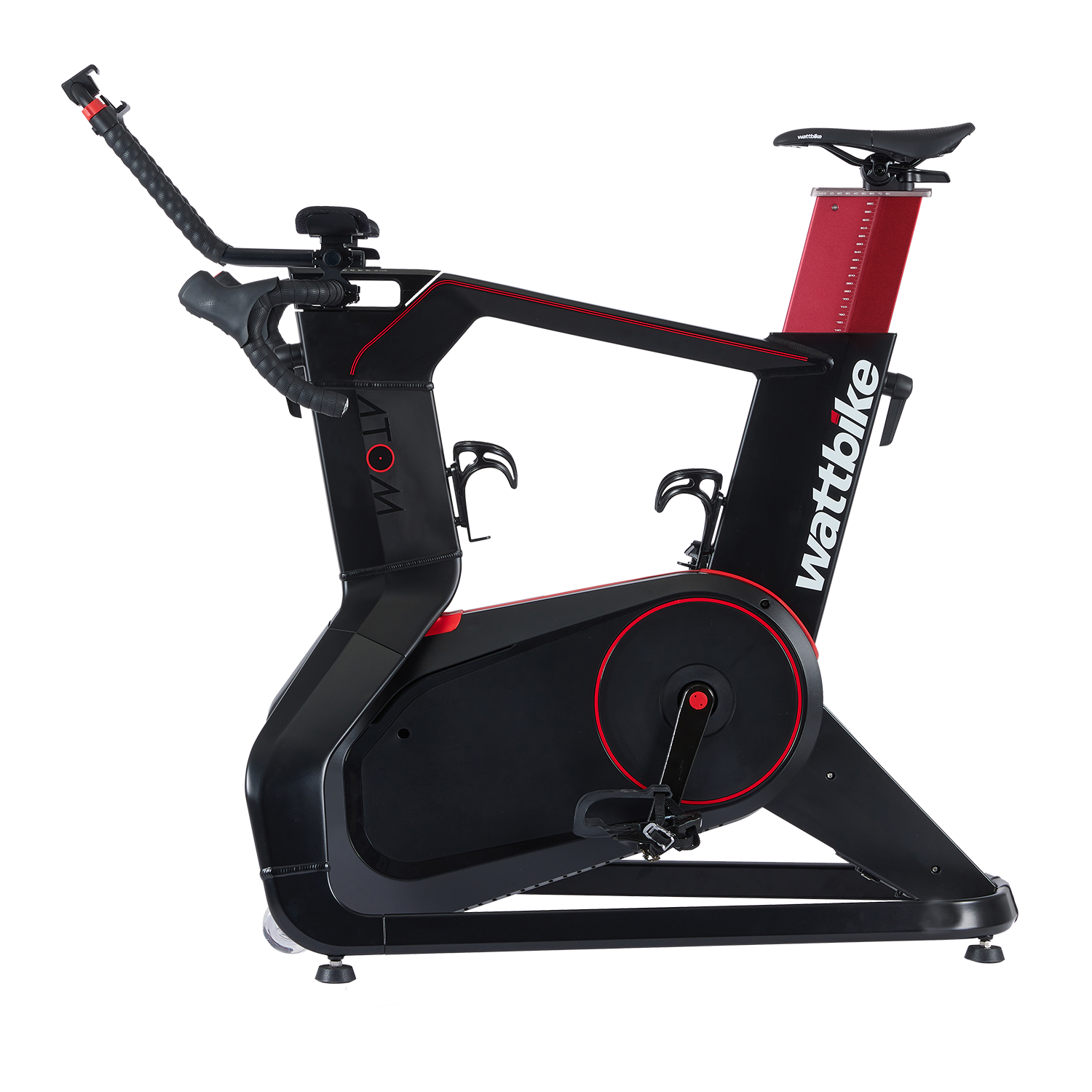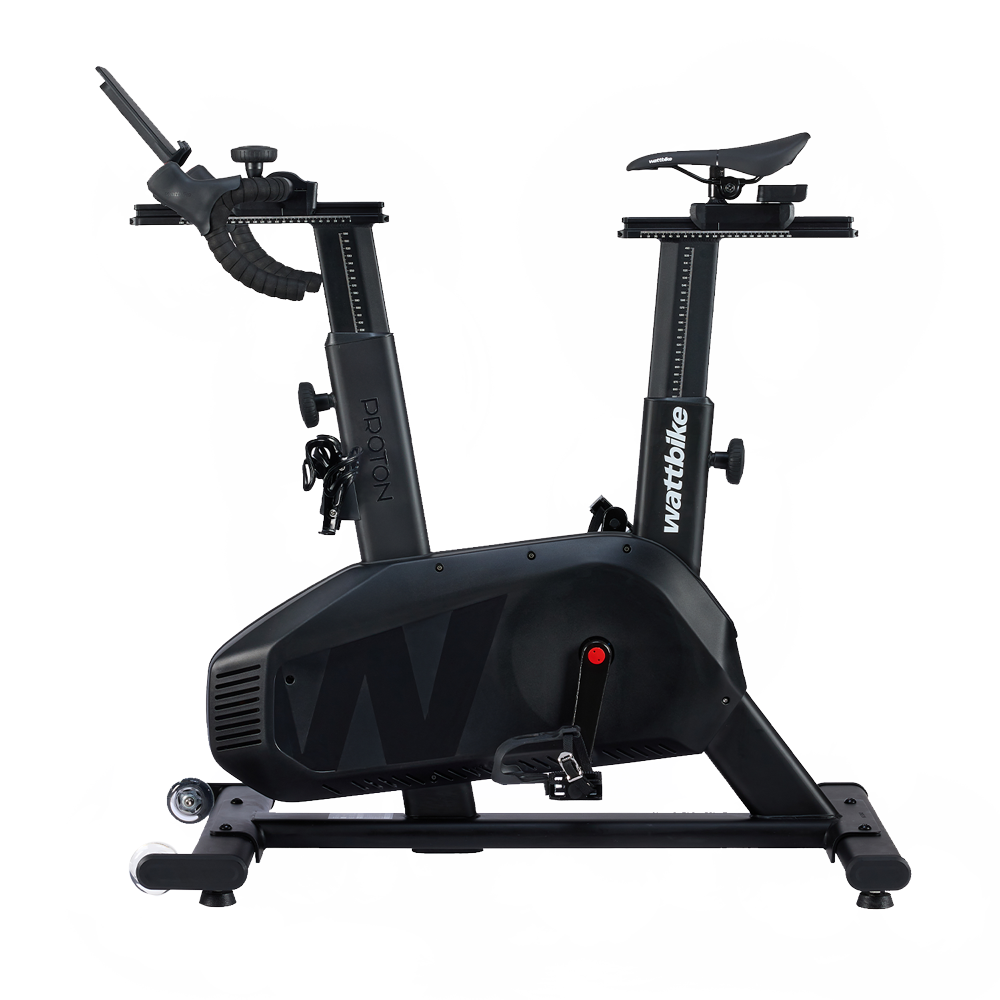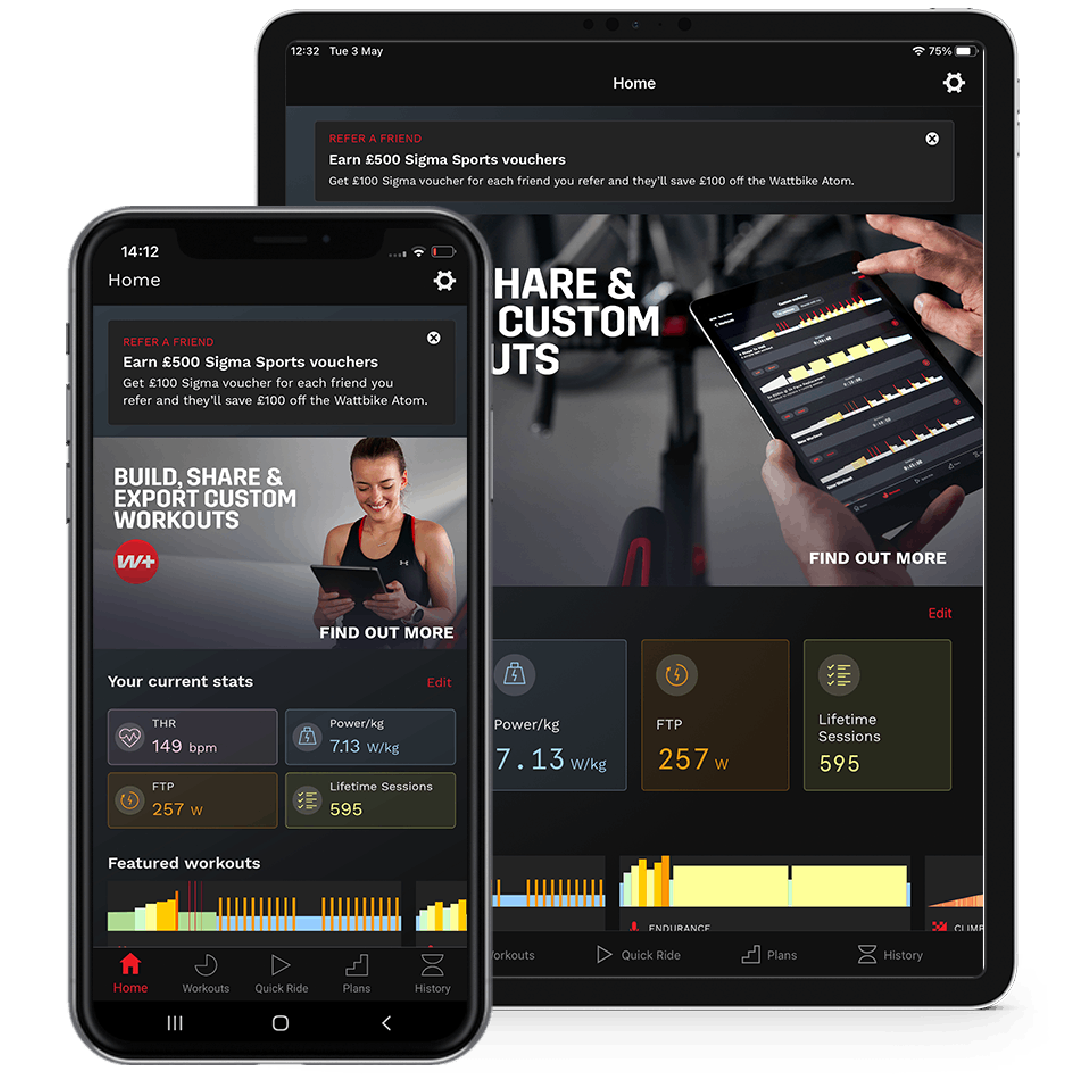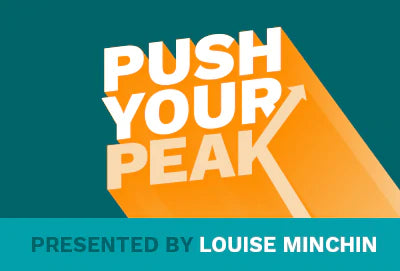Your Cart is Empty
shop
training & apps
support & services
news & information
Strength Training For Cyclists
November 24, 2021 4 min read
Once you become serious about cycling and get hungry for results, you realise there are a lot of plates to spin when it comes to training. You already know you need to ride intervals, sweat through hill repeats, sail through easy recovery rides and enjoy a club ride at the weekend. But what about weight training? Whether you love or hate spending time in the gym, strength training for cyclists is almost as important as time spent in the saddle. We take a deep dive into strength and power training for cyclists and give you some strength training exercises to add into your weekly routine.
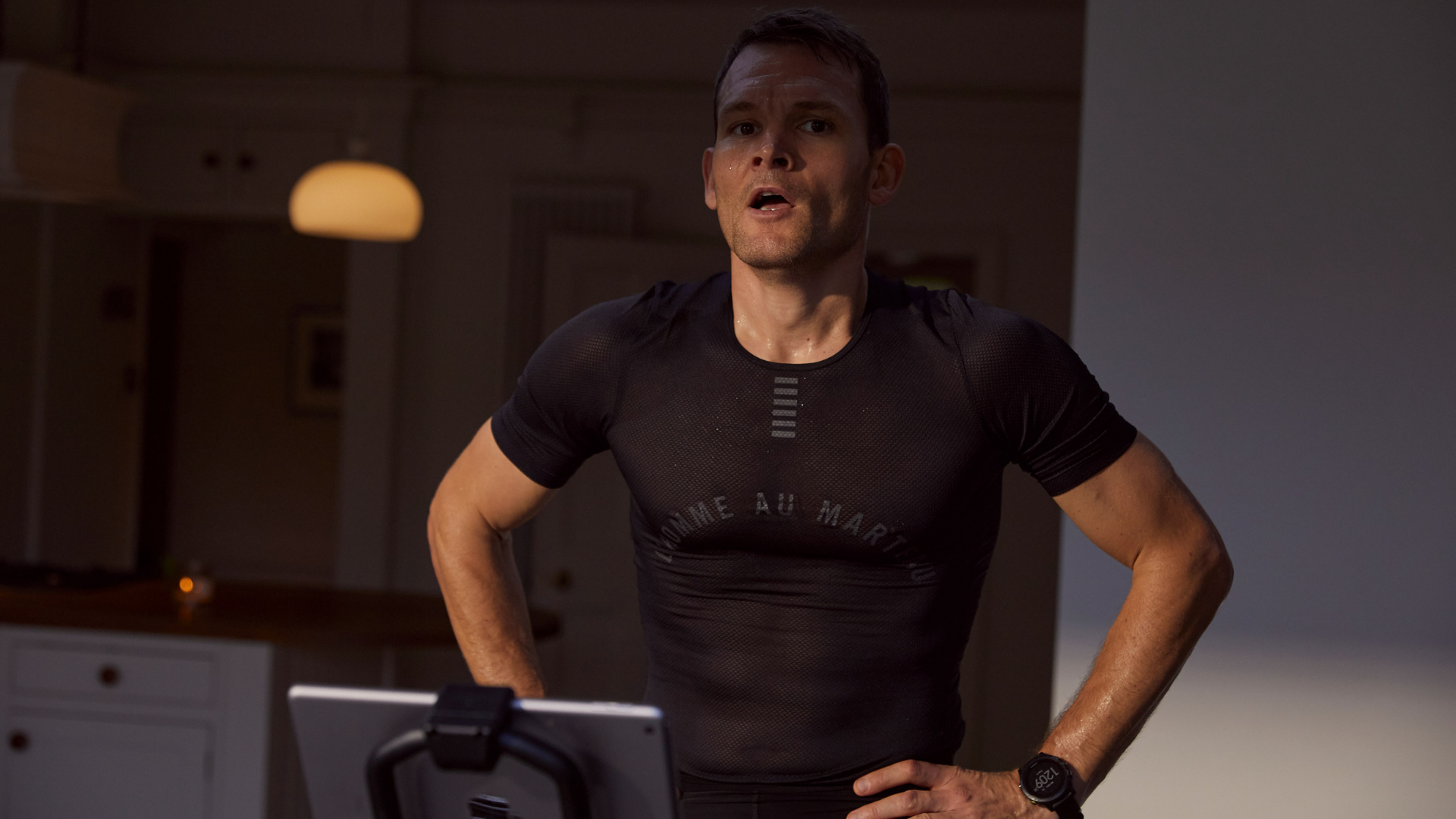
Why is Strength Training Important for Cyclists?
When it comes to strength training, we don’t mean you have to bulk up and train like a bodybuilder. Having a strong, stable body will considerably improve your riding technique and will lead to important gains in your power output, pedal efficiency, and ultimately your success as a cyclist. A strong core will offer a smoother pedal stroke by reducing side-to-side movement in the saddle and will also stop your lower back and shoulders from aching after a long ride. Strong legs will of course lead to increased cycling wattage which will allow you to ride faster for longer and improve your endurance up hills.
Not only will strength training allow you to become a better cyclist, it will reduce your risk of injury and promote recovery for more efficient training. Strong muscles mean better supported joints, which is paramount for a healthy cyclist.
When Should Cyclists Do Strength Training?
We all love spending time in the saddle and breezing along the open road, so don’t think you have to slog through hours of strength training every week. Supplement your cycle training with one or two strength and conditioning workouts a week, with each workout around one hour in duration. There’s no need to do any more than that.
How Do I Strength Train for Cycling?
It’s important to consider which muscle groups are needed most when cycling and which are the most necessary to give supplemental training. As a cyclist, you’ll want to focus most of your strength training on your legs, glutes, and core. There’s no need to do a ton of upper body work, but of course this can help with riding position and posture so don’t exclude it altogether. Below are some of the best strengthening exercises for cyclists, with an explanation of how to do them and why they should form a part of your training.
The Best Strengthening Exercises For Cyclists
Bulgarian Split Squats
As a cyclist, each of your legs needs to be independently strong and healthy. Your legs work individually to create power through pedal stroke and so single-leg strength exercises will benefit the way you ride your bike. If you’ve ever done some killer climbs on the Wattbike Hub, like Alpe d’Huez, you’ll know that each leg needs to be incredibly strong to tackle those killer mountain inclines. Bulgarian Split Squats play to this strength by almost mimicking the movement of a tough climb and will help to improve your hill climb ability.
Stand in front of a bench or, if doing strength training for cyclists at home, you can use your sofa. Carefully balance your weight onto your left leg and lift your right leg behind you onto the bench or sofa. Carefully hop your left leg forward so that your right leg is bent at 90 degrees. With your back straight and your body upright, lower your left leg into a split squat. As you squeeze back up, you should feel the burn in your left glute and perhaps in your right quad. Repeat for 10 reps, then switch legs. If you want to take it up a gear, you can hold a dumbbell in each hand to increase the resistance.
Single Leg Kettlebell Deadlifts
This is another single leg exercise which will encourage both legs to be independently strong and which will prevent your dominant leg from doing all the work and leaving your less dominant leg to become weak. This exercise will also test your balance, which is perfect for improving your pedal technique and efficiency when out of the saddle.
Stand with your feet hip width apart and hold a kettlebell in front of you in your left hand. If doing strength training for cyclists at home, you can use any heavy object such as a filled rucksack. Balance your weight onto your right leg, then slowly lift your left leg off the ground behind you and simultaneously lean your upper body forwards. Squeeze your core tight and keep your back flat as you reach the kettlebell towards the floor. Squeeze your left glute as your leg raises behind you and take care to keep your balance. Slowly hinge back to your starting position. Repeat for 10 reps then swap onto the other side. Take this one very slowly and focus on technique.
Plank Get-Ups

As mentioned above, a strong core is vital for stability in the saddle and optimum cycling technique. This exercise will not only test your core strength but will also test your balance, stability, and shoulder strength, which is ideal for cyclists. It will help you to feel more stable in the saddle and should prevent your shoulders from aching after a long ride.
Adopt a classic plank position on your elbows. Keep your forearms parallel (don’t clasp your hands together) and turn your palms so that they are facing the floor. Carefully shift your weight onto your left side and lift your right arm so that it is straight with your palm on the floor. Then straighten your left arm so that you are in a press up position with straight arms. Immediately bend your right arm back down followed by the left so you are back in the plank position on your forearms. That’s 1 rep, try for 10. Once you get the hang of it, work hard not to let your body rock from side to side, instead keep a solid core like you need on the bike.
Also in Training

Blue Monday: How to Stay Motivated and Build Fitness Habits That Last
January 16, 2026 3 min read
Blue Monday marks the point where motivation fades and fitness goals are tested. But long-term progress isn’t built on motivation alone. Discover how habit formation, structure and smarter training with the Wattbike Hub App can help Wattbikers stay consistent and committed. Long after January enthusiasm disappears.

Why Benchmarking Matters
December 29, 2025 5 min read
Ever wonder why some athletes make rapid gains while others plateau? The secret isn’t just hard work, it’s benchmarking. Without knowing your starting point, training can be guesswork. The right test, from an FTP or ramp test for endurance to short maximal efforts for power, gives you the data to train smarter, not harder. Benchmarking transforms every session into a targeted, purposeful workout, accelerates progress, and ensures recovery is effective. Plus, regular re-testing keeps your training in sync with your improving fitness, so you stay ahead of stagnation and build sustainable, long-term performance. Discover how to train with clarity, confidence, and measurable results.

Balancing the Gym With Off-Feet Conditioning
December 18, 2025 5 min read
Building lasting fitness isn’t about training more - it’s about training smarter. We want tog ive you the tool toStart Strong, Stay Strong this 2026 and explain how to balance gym-based strength training with off-feet conditioning, to create a structured weekly routine that supports performance, recovery, and consistency. Whether you train three, four, or five days a week, this guide shows how the right training split helps you build strength, improve cardiovascular fitness, reduce injury risk, and maintain momentum throughout 2026 with a plan you can actually stick to with your Wattbike.
Get the latest!
News, training tips, offers and more, straight to your inbox.



